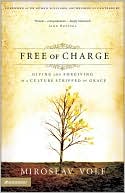What shall we say then? Are we to continue in sin that grace may abound? 2 By no means! How can we who died to sin still live in it? 3 Do you not know that all of us who have been baptized into Christ Jesus were baptized into his death? 4 We were buried therefore with him by baptism into death, in order that, just as Christ was raised from the dead by the glory of the Father, we too might walk in newness of life.Grace Doesn’t Abound So That Sin Can. The greater the sin the greater the grace required to overcome that sin. But the point of grace is not to increase sin but to destroy it. That in a nutshell is Paul’s main point here. In chapter 5, Paul declared that sin is a massive, universal epidemic killing all those infected with it. So profound are its effects and so tyrannical is its power that it disables all persons from resisting its destruction and death. Thus, a new man is needed. A true man, but a man unlike any other man, who is capable of absorbing in himself the destruction of sin for all humanity. This man becomes the ancestor of a new race of persons free from the dominion and death of evil. Thus, it is God’s grace delivered through this man, and through him alone, that sin is overcome. And the grace delivered through him brings total forgiveness and redemption for a lost race. So what do screwed up minds do with such grace. They either find a fault or a loop hole. Those wanting the opportunity to deliver themselves from sin’s power say, “But if the grace comes to us so independently of how good we are, then why not just disobey so that grace may abound?” Meanwhile, those wanting the opportunity to live the ways they always have think, “Ah, sin abounds, grace abounds. So my job is to sin and God’s job is to forgive. Sounds like a good arrangement.” So “are we to continue in sin that grace may abound”? There is almost no way to translate from Greek to English the force of Paul’s negative response to these thoughts, but it would something “#@LL NO!”
5 For if we have been united with him in a death like his, we shall certainly be united with him in a resurrection like his. 6 We know that our old self was crucified with him in order that the body of sin might be brought to nothing, so that we would no longer be enslaved to sin. 7 For one who has died has been set free from sin. 8 Now if we have died with Christ, we believe that we will also live with him. 9 We know that Christ, being raised from the dead, will never die again; death no longer has dominion over him. 10 For the death he died he died to sin, once for all, but the life he lives he lives to God. 11 So you also must consider yourselves dead to sin and alive to God in Christ Jesus.
How Can We? That’s he what says: “How can we who died to sin still live in it?” He doesn’t say, “How could we” or “How dare we” or even “How would we.” This isn’t a lecture on how guilty we are or an argument for perfectionism. This is how God’s grace overcomes sin. The power of his grace unleashed on the cross doesn’t guilt or scare us into obedience. It loves us their. God grace brings us to the point where we cannot help but see our rebellion and say, “How can I do this? How can I stay here? Why would I?”
Sin Is Death. Sin isn’t just bad; it’s deadly. Forging that connection is key to understanding Jesus’ saving grace. Jesus didn’t just die to forgive the badness of our sin. He died to crush the destructive power of our sin as well. He rose not only to restore a relationship with God, but also to make us like him. You can’t have sin without death, and you can’t have life without righteousness.









No comments:
Post a Comment